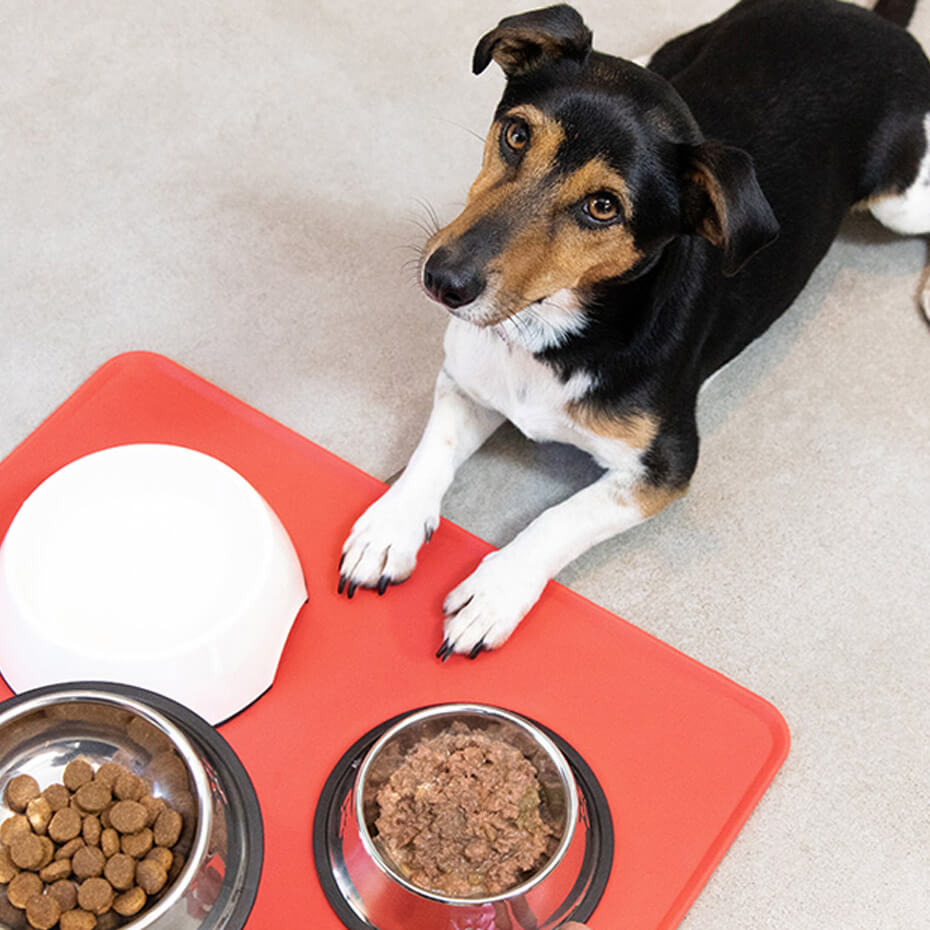
Blueberries are a great, healthy snack for humans, but do they offer the same nutritional benefits for our dogs too? Find out if dogs can have blueberries and if they’re good for them with this article.
Blueberries can be especially moreish for us humans. Their small size coupled with their juicy contents means that we often find ourselves reaching for berry after berry. And it makes it even better that they’re packed full of goodness for us to enjoy! Whilst you’re tucking into your delicious snack, you may discover you’re being watched by your four-legged friend, eagerly awaiting with their best puppy dog eyes and might find yourself wondering ‘can dogs eat blueberries?’
We’ve put together this guide to tell you everything you need to know about whether dogs can eat blueberries or not and if blueberries are good for dogs.
Can dogs eat blueberries?
Yes, dogs can have blueberries! They’re not toxic at all and most dogs tend to love the sweet taste as well. However, before introducing any new foods to your dog’s diet, we always recommend consulting your vet.
They’ll be able to advise whether it’s best for your dog to eat blueberries and tell you the correct amounts to feed your particular dog. Blueberries contain natural sugars and should be regarded as an occasional treat. Remember that snacks should make up no more than 10 percent of your dog’s daily food allowance.
Are blueberries good for dogs?
Mostly blueberries are good for dogs. They’re low in calories and contain antioxidants and vitamins C and K, so they can make great treats if you’re watching your dog’s waistline.
However, blueberries are high in fibre which is only beneficial in small amounts and feeding too much could cause gastrointestinal upset and diarrhoea. Another factor to be aware of is that blueberries contain sugar so they should always be fed in moderation as too much sugar can cause cavities in dogs. Additionally, their small size can be a choking hazard to dogs (particularly smaller breeds).
Where fresh blueberries are fine for them to eat, avoid blueberry flavoured things as it’s likely these will contain artificial flavourings, colours and preservatives and other additives that can be dangerous to your dog’s health. You should also never feed your dog foods that contain blueberries such as muffins and cakes as these are high in sugar and fat.
How to feed blueberries to dogs
Now you know that dogs can eat blueberries, it’s time to find out the best way to offer them to your pet. First things first, we recommend purchasing organic blueberries for your dog to eat as these won’t have as many pesticides as the cheaper fruits.
Prior to feeding your dog blueberries you should always clean them by washing them under a running tap to remove any potential pesticides and dirt. You should also be sure to check for mould at this point too.
Blueberries are small already so you won’t need to chop them, but if you’re worried about a potential choking hazard you may want to mash them up.
Some people recommend freezing blueberries as a tasty snack for dogs to enjoy on hot summer days, but we don’t recommend this as the freezing process makes them very hard and can increase the risk of choking.
If you’re at all concerned about feeding your dog blueberries, consult your vet before giving them. It’s always best to be on the safe side when it comes to our four-legged friend’s health!
Now you know the answer to can dogs have blueberries. Want to find out more about which foods your dog may or may not be able to have? Discover if your dog can eat strawberries, next.













